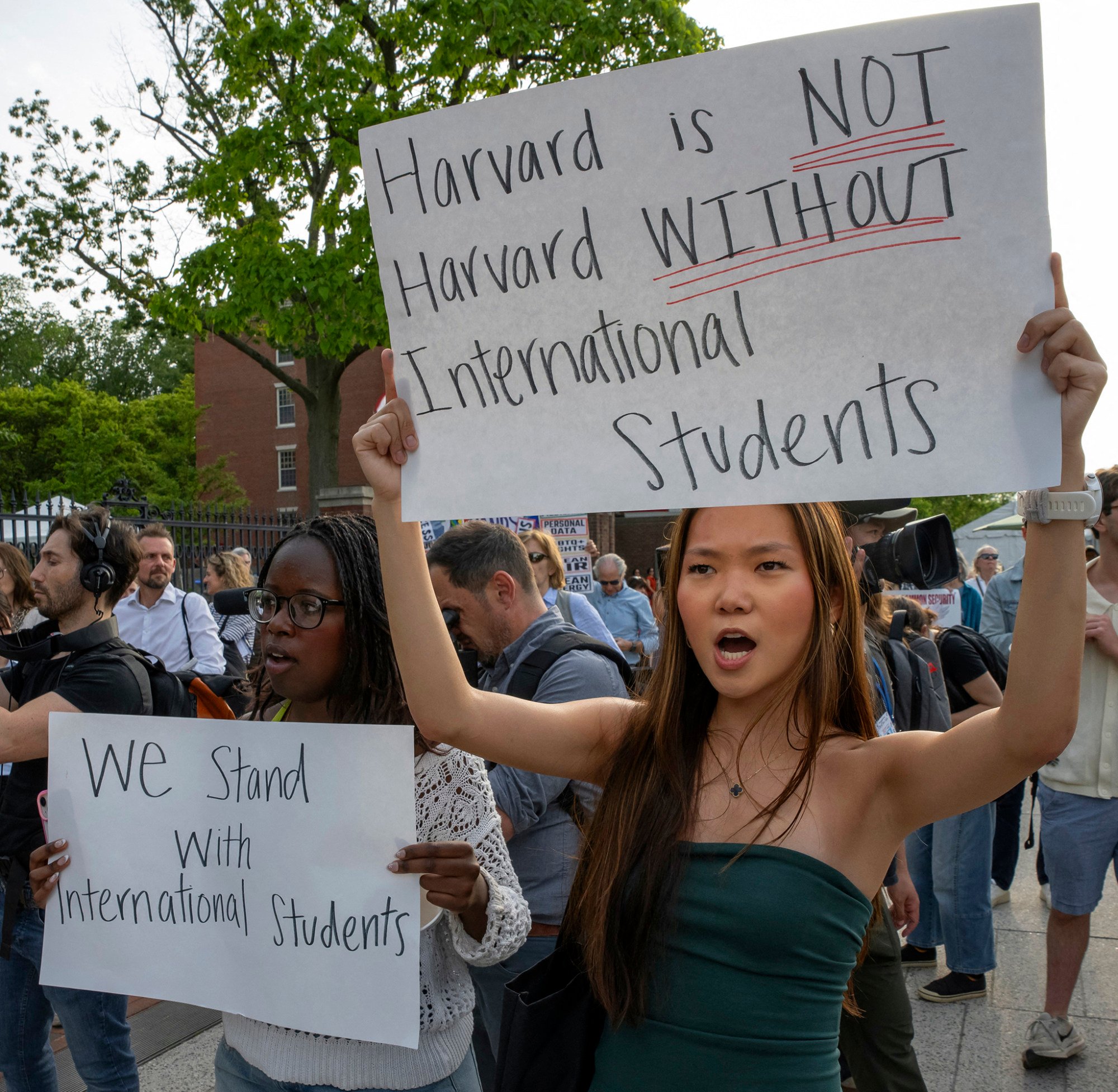South Korean students hire ‘digital undertakers’ amid US visa scrutiny
Seoul’s US embassy has started taking in student visa applications but applicants would have to set their social media posts to ‘public’

South Koreans looking to study in the United States are turning to “digital undertakers” to scrub their online footprint clean before applying for visas, as President Donald Trump’s administration seeks to significantly tighten its social media vetting.
Last Friday, the US Embassy in Seoul said it would resume receiving visa applications for students and those on exchange programmes – but applicants would have to give it access to their social media accounts.
“All applicants for F, M or J nonimmigrant visas are required to set their social media posts to ‘public’ visibility,” the embassy’s own social media post read.
For a 28-year-old student who wanted to be known only by her surname, Kim, this requirement comes on top of the already “daunting task” of working towards her doctoral degree in the US.

After spending 1½ years preparing to apply to a US graduate school, “I felt like I was ready this year and was going to apply”, she told The Korea Herald newspaper. “But knowing that my social media accounts and the stuff I posted in the past could be an obstacle to me studying in the States and not something like my school grades is really stressful to me.”
Kim turned to an online reputation firm “to help me permanently delete data that could work against me, as I’ve voiced opinions on political and social issues on social media in the past that oppose the current US administration’s stance”.
Clean sweep
Dubbed “digital undertakers”, these companies specialise in scrubbing their clients’ online footprints, either by removing anything controversial from past posts and comments or deleting the entire profile altogether.
Demands for these services are rapidly growing in South Korea. Santa Cruise, a reputation firm offering digital undertaker services, said it has received more requests from clients planning to apply for schools in the US in recent months.
Previously, the company dealt mostly with jobseekers who wanted to have a clean social media profile. “These days, we’ve seen a growing number of individual clients seeking assistance before they apply for a visa to study in the US,” said the firm’s representative.
Prices for digital undertaker services start at 100,000 won (US$73) and can reach millions of won depending on how much content needs removing.
Posts that the company has deleted included “politically sensitive content [and] some that were rather personal, including posts confessing personal struggles or photos of them partying”, the Santa Cruise representative said.
The US Embassy’s social media announcement sparked online criticism.
“How is this any different from North Korea? With far-right fascists seizing power, America’s become just like them now,” a comment below the post read.
“At what point has the US ever properly upheld democracy?” another wrote.
On May 28, the US State Department suspended all student visa application interviews, saying it was a temporary measure to prepare the social media vetting procedure.
The US has required that visa applicants list their social media accounts since 2019. But this new vetting appears more stringent to help identify those who “bear hostile attitudes toward our citizens, culture, government, institutions, or founding principles”, according to a State Department cable sent to diplomatic missions on Wednesday, Reuters reported.
Officers can use any “appropriate search engines or other online resources” to look for potentially derogatory information. “For example, during an online presence search, you might discover on social media that an applicant endorsed Hamas or its activities,” the cable said, adding that this might be a reason for ineligibility.
The cable said the enhanced vetting measures for visa applicants looking to go to Harvard University would serve as a pilot programme for the expanded screening.
Earlier in May, the Trump administration barred Harvard University from admitting international students, which accounted for 27 per cent of its total enrolment in the 2024-2025 academic year.
The university challenged Trump’s proclamation, and a federal judge has blocked the ban until the case can be resolved in court, according to UK newspaper The Guardian.